By Chinelo Obogo
The Chairman/Chief Executive Officer of Air Peace, Allen Onyema, has made a disturbing disclosure that his company suffered 115 bird strikes in the last five years.
But despite the challenge, he said the airline has three serviceable airplanes on standby at any point in time to address the long-standing issue of flight disruptions. This strategy, he emphasised, has boosted the airline’s on-time performance to over 85%.
In a parley with journalists earlier this week at the airline’s Lagos office, Onyema spoke on many issues relating to its operations, especially two serious incidents that occurred last week, which necessitated the immediate grounding of its aircraft.
He also disclosed plans to relaunch flights to India, South Africa and China, alongside the introduction of a new Abuja–London Heathrow service set to commence in October.
What are the causes of flight delays and cancellations for Air Peace and how does the airline mitigate risks like bird strikes to ensure passenger safety?
About 95 per cent of the flight delays and cancellations we experience result from external factors. Most of our flight delays are caused by weather, infrastructure problems, bird strikes, inadequate landing equipment, sunset airports and so on. Last week, we recorded two bird strikes. In the past five years, Air Peace has recorded 115 bird strikes and over 30 bird strikes this year alone. But passengers do not understand that the flight delays and cancellations are not the fault of the airline. When bird strikes occur, they automatically take our equipment out of operations. Remember, it was a bird strike that took out an airplane in America; the pilot had to land on Hudson River. Bird strikes can destroy your engine, depending on how they happen.
Last week, we had two serious bird strike incidents in one day; one in Owerri and another in Port Harcourt.
The Port Harcourt incident happened during landing, when a large bird collided with the aircraft’s landing gear. There was significant damage to the aircraft, but the flight landed safely.
For the Owerri bird strike, it was more serious. A bird struck the aircraft mid-flight. The bird was very large; it was bigger than my lap. The windshield broke, and the situation could have been catastrophic, but we managed it. However, the bird strike compromised visibility and risked depressurisation. It took our quick-thinking pilots to descend to below 10,000 feet to prevent cabin pressure loss. The aircraft, which was originally headed to Abuja, could not continue the journey and had to land immediately. If they had climbed higher, there would have been decompression and passengers could have died. We thank God for the pilot’s actions. Our pilots undergo rigorous training to handle such emergencies. We have a special bird strike simulation programme where pilots must pass scenario-based drills before flying. You don’t fly if you fail that module. Foreign airlines often don’t go that far, and we do it to maintain the highest safety standards.
We should be thankful to God Almighty that bird strikes haven’t caused an accident in Nigeria. We are even having animals attack our aircraft. Because of our capacity and the number of places we operate flights to, you see many people on social media shouting and blaming Air Peace. Sometimes, we have thunderstorms and rain and we are not able to operate flights. This will definitely affect other flights on our schedule.
Air Peace has zero tolerance for unsafe practices. What we sell to Nigerians are our safety protocols, and we are very proud of this. We haven’t been validated by Nigerians alone. Air Peace has also been validated to be the pride of this nation by one of the most stringent Civil Aviation Authorities all over the world.
What operational strategy does your airline plan to implement to improve its on-time performance?
We introduced a major operational shift on May 12, 2025 and this new strategy is to always have three fully serviceable aircraft on the ground to serve as backup. These aircraft remain on standby and are deployed whenever unforeseen events like bird strikes or technical challenges ground our active planes. We made this decision after we carried out a detailed analysis of the operational disruptions we experienced, and many of these disruptions were outside our control. Since adopting this strategy, we have achieved over 85% on-time performance.
But this solution comes at a cost because it means we are losing capacity and turning away paying passengers every day. But it is a price we’re willing to pay to avoid delays and cancellations. Because of this, we have fewer seats available because planes are idle. But it’s better than having stranded travelers. We cancel only when safety is at risk. We delay when delay is necessary. We do not cut corners. Delay is not our culture. They are often forced on us. We appeal for patience and understanding from the flying public. People need to understand and appreciate the effort we are putting into ensuring passenger safety above all else. You need to be alive to criticize. We’d rather you arrive late and safe than not arrive at all.
What is your maintenance framework?
Our fleet maintenance is top-notch. We have a partnership with the Israeli Aerospace Service and they are the ones maintaining our planes. You can’t hide an aircraft anymore. With flight tracking tools like FlightRadar, people can verify aircraft location in real-time.
Also, the confidence of the banking industry in domestic aviation has grown due to our financial integrity. Fidelity Bank celebrated us recently. Our financial integrity is the reason for our expansion; every Nigerian bank now wants to partner with us because we see borrowed money as other people’s money, and it is depositors’ money, so we are prudent with it.
Banks don’t look over their shoulders when they are dealing with us. Air Peace is doing well, thanks to Nigerians and thanks to the flying public. I thank Nigerians for their support. Nigerians love Air Peace. As I said before, 99% of Nigerians love Air Peace. I don’t want to be swayed by the 1% that believes in the pull-down syndrome. This pull-him-down syndrome must stop. Both government agencies and citizens must stop trying to destroy their own. If you destroy any indigenous business that provides massive job opportunities, you don’t know where the next suicide bomber, armed robber or kidnapper will come from.
Air Peace has served Nigeria diligently. For over a decade, we have carried out humanitarian interventions at our own expense. During the COVID-19 pandemic, we transported medical supplies from China and other countries to Nigeria free of charge. We also carried out high-risk rescue missions to evacuate Nigerians from Ivory Coast, Sudan, South Africa and Libya and we did all of this without government funding. No other Nigerian airline has done this. We have spent billions of naira on these missions, not for profit, but out of patriotism. This airline was born out of a vision to bring peace to Nigeria. Air Peace is not just an airline; it is a national symbol of resilience, service, and hope. We deserve to be applauded.
Expansion plans
As part of our expansion strategy, we will soon restart suspended routes like Dubai, India, South Africa and China, which we stopped due to operational challenges. For our South Africa route, their visa regime is frustrating, where even our pilots are being denied visas. We are going to operate a direct flight to the Caribbean nations, starting with Antigua. A few days ago we flew to St. Kitts and Nevis. I’m sure some of you have seen the stories. We came back on June 12th. We flew to St. Kitts and Nevis and came back the same day. And yesterday we went to St. Kitts and Nevis again and came back this morning. This is a 20-hour flight, 10 hours going, 10 hours returning. We landed in St. Kitts and Nevis and tested our cargo and passenger operations.
For India, we stopped our operations to Mumbai because of the London launch, but we plan to re-enter India through Delhi, where there is higher passenger demand. We tried switching from Mumbai to Delhi previously but were denied. We are now reapplying. We have increased our B777 fleet to four because our China operations will soon start. We are already discussing the acquisition of wide-bodied aircraft based on wet lease arrangements.
I also want to tell you that on October 26th, we will start our Abuja-London Heathrow flights. I want to announce to you that the British authorities have granted Air Peace access to Heathrow, and this is a testament to their belief in what we are doing. I would like to thank the British authorities for doing that. I would like to thank the President for all his efforts to showcase Nigeria to the world. This is also a testament to our resilience.
The British and European authorities came here and audited our airline, and we passed with excellent results. That is why they approved us to operate there. And over the last one and a half years, Air Peace has proved its ability on international routes. To the admiration of those who gave us that validation, we never cancelled any flight to the UK for one day. The only times we delayed were when the airport itself called on us, telling us to delay our departures from here because they were doing runway repairs. We stopped going to Dubai because of the visa ban, but the traffic is not like it used to be. So we are studying the route and gathering data on how the traffic is performing. We are, however, in partnership with Emirates now.
All of this has been possible because of the efforts of the Aviation Minister, Festus Keyamo, who has worked hard to ensure that domestic airlines function optimally. For instance, for over a decade, Nigerian airlines were unable to get aircraft on dry lease because the country was blacklisted, even though such leasing models are standard elsewhere in the aviation world. Most major airlines across the world operate with leased fleets, unlike Nigerian airlines, which often purchase aircraft outright. You can see a foreign airline with 100 planes may only own five. But thanks to the implementation of the Cape Town Convention, Nigerian airlines are no longer blacklisted by global lessors. This means we can now lease aircraft and compete with international airlines on fairer terms.
Need for better infrastructure
There is a need for our airports to be upgraded to help with seamless regional and international transits. The current system where travelers connecting through Lagos must undergo full immigration, customs, and quarantine processes is not helpful at all. For instance, a passenger flying from Accra to the Caribbean through Lagos must clear immigration and pay over $400 before continuing. These sorts of things discourage international traffic and undermine hub potential.
I urge the Federal Airports Authority of Nigeria (FAAN) to designate controlled transit zones within major terminals so that such zones will ease connections and make Nigeria more competitive regionally. Let us create temporary but functional transit areas for international passengers, particularly on African and Caribbean routes.





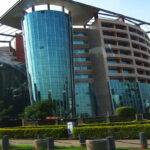



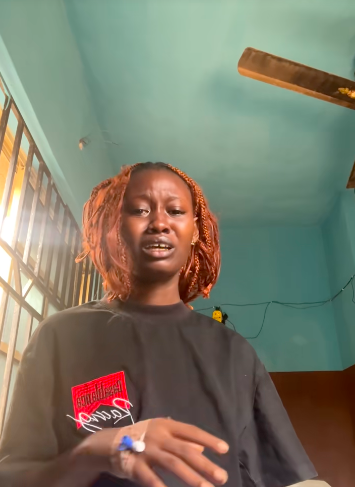
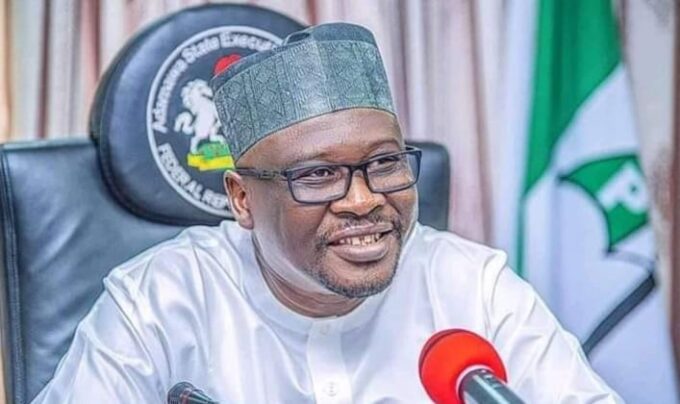
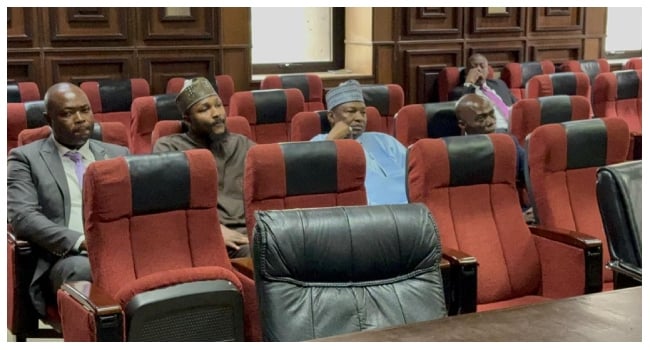


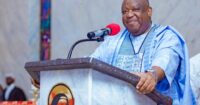


Leave a comment